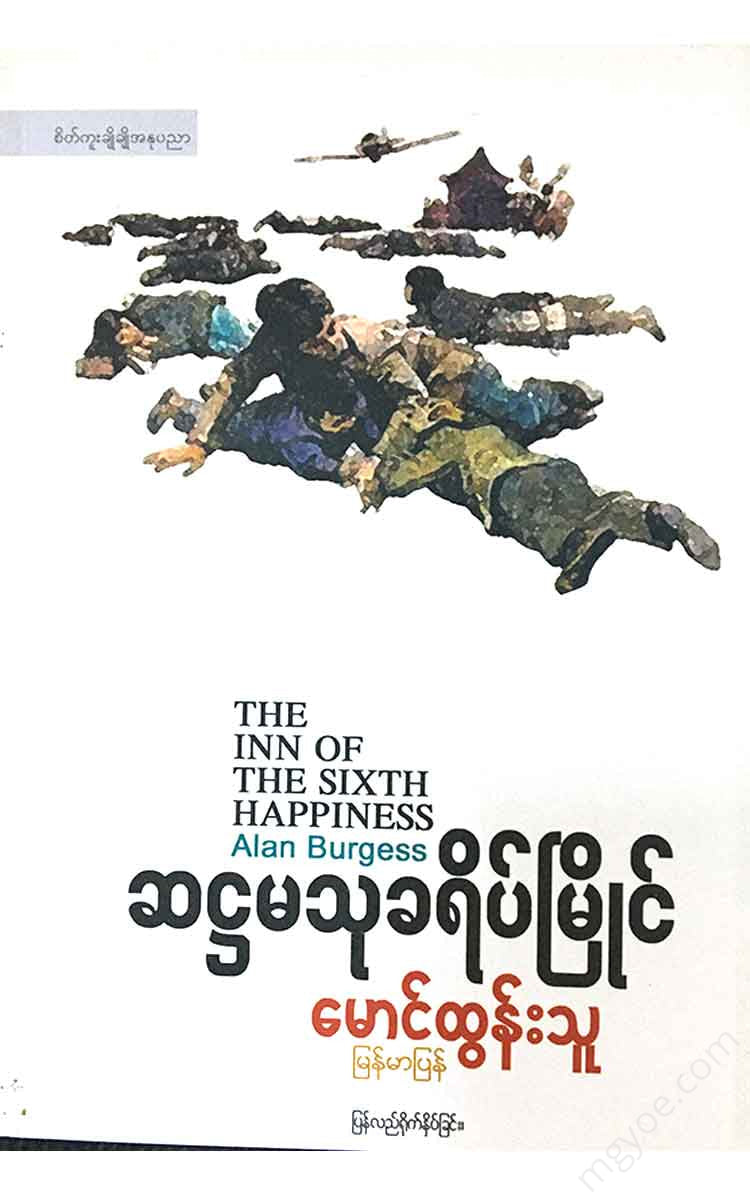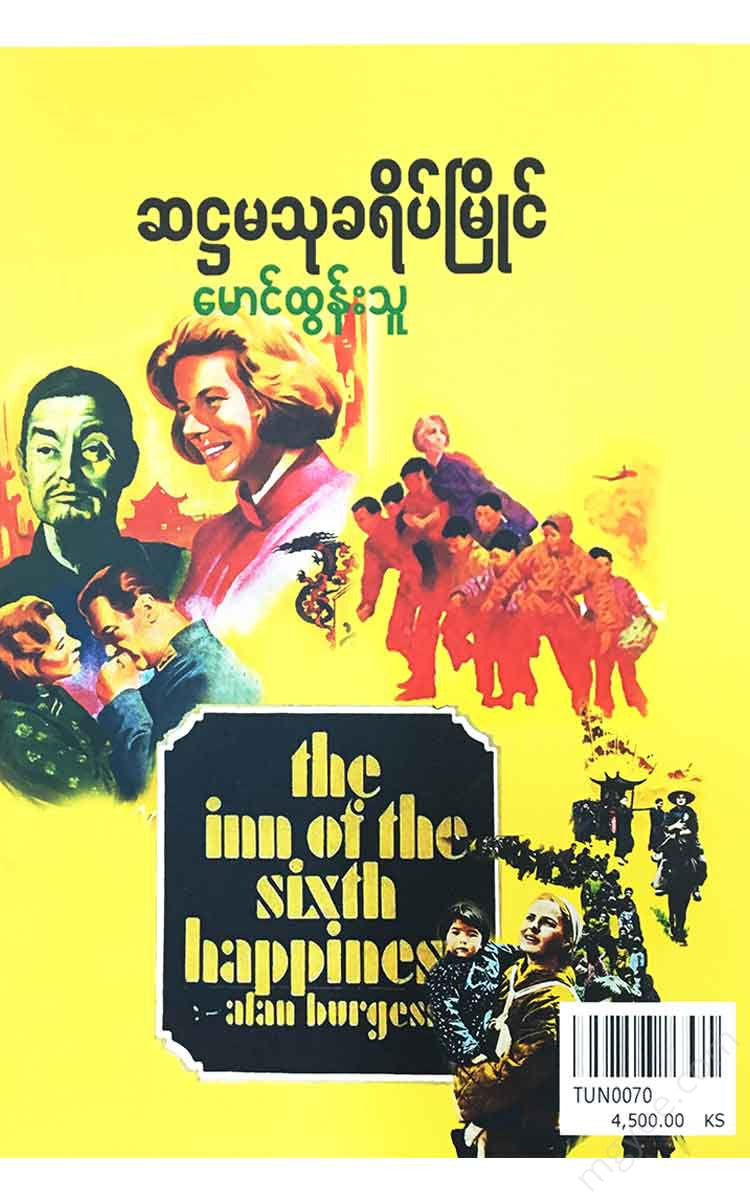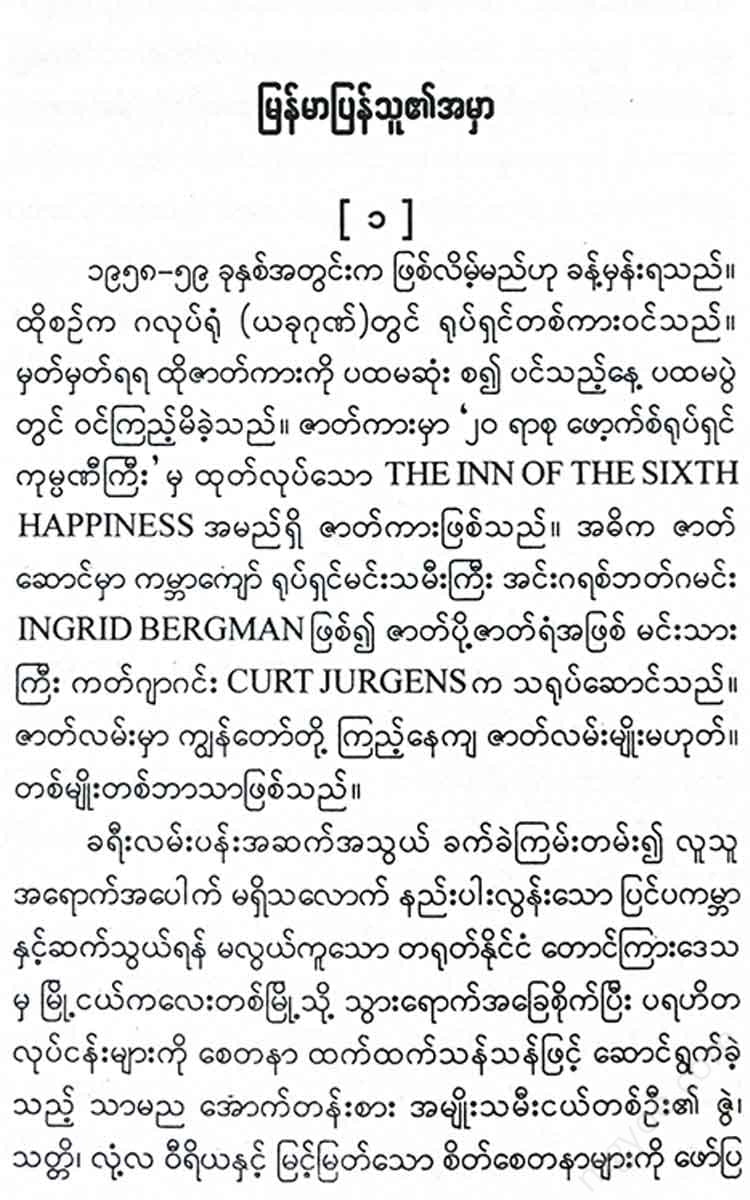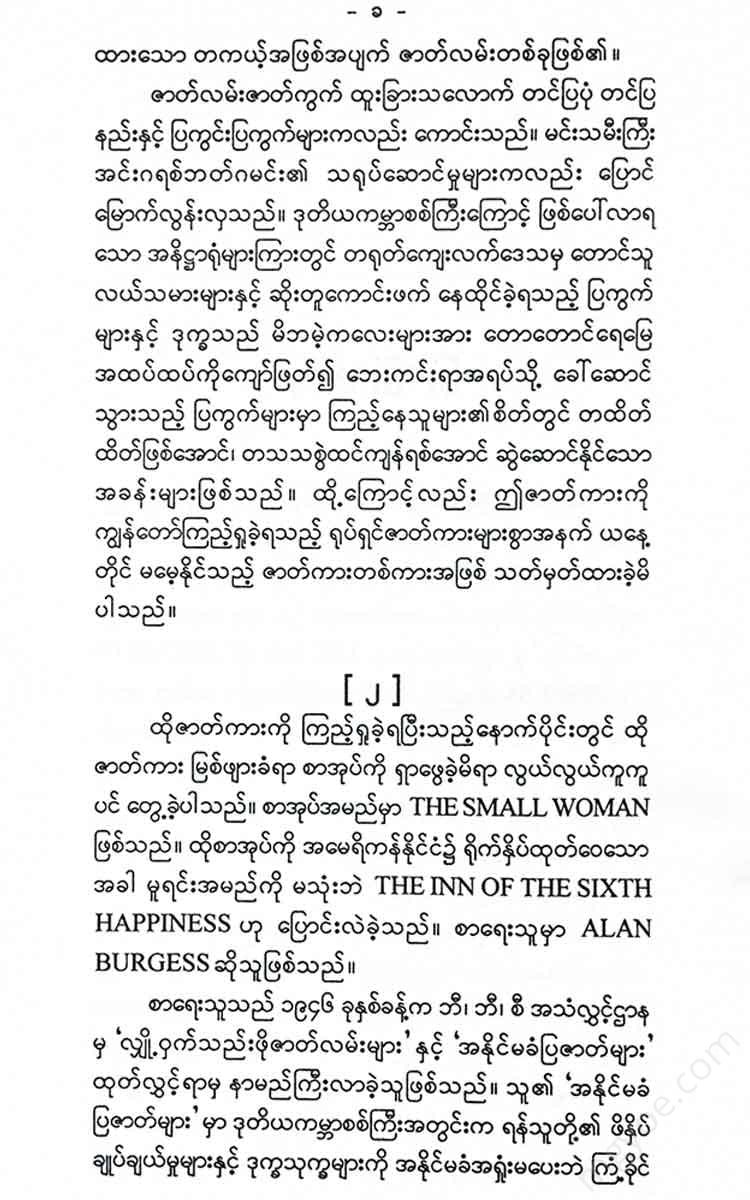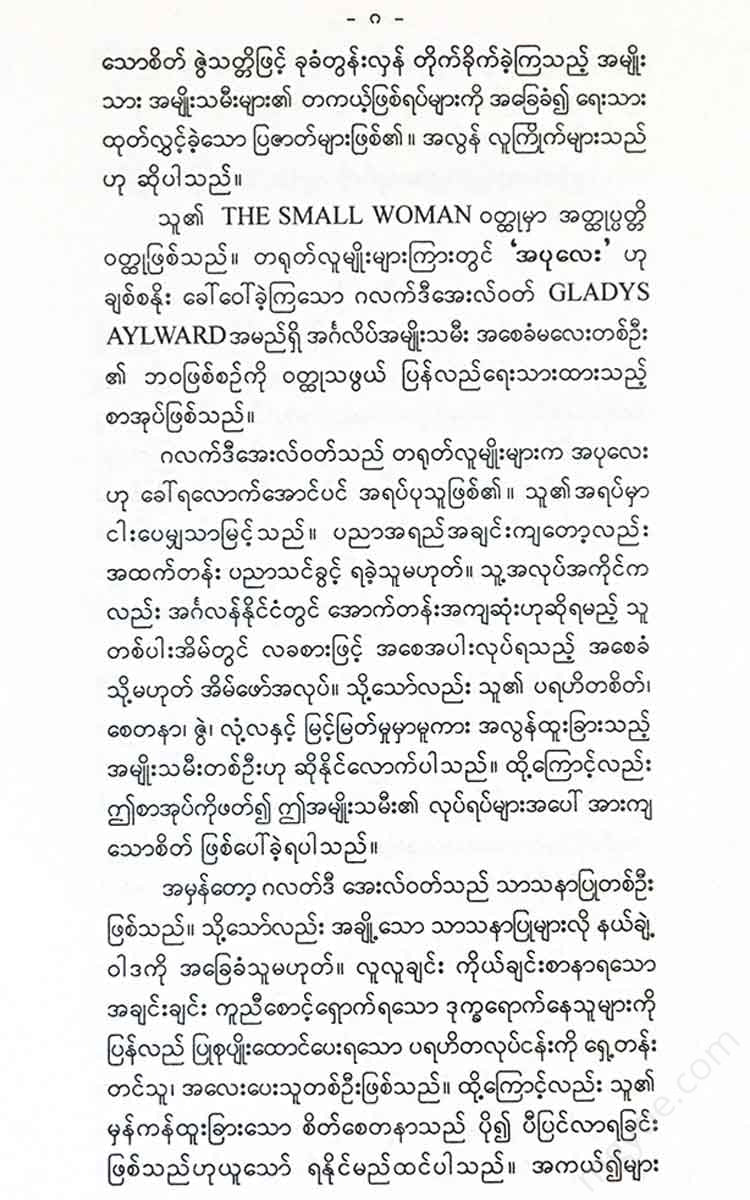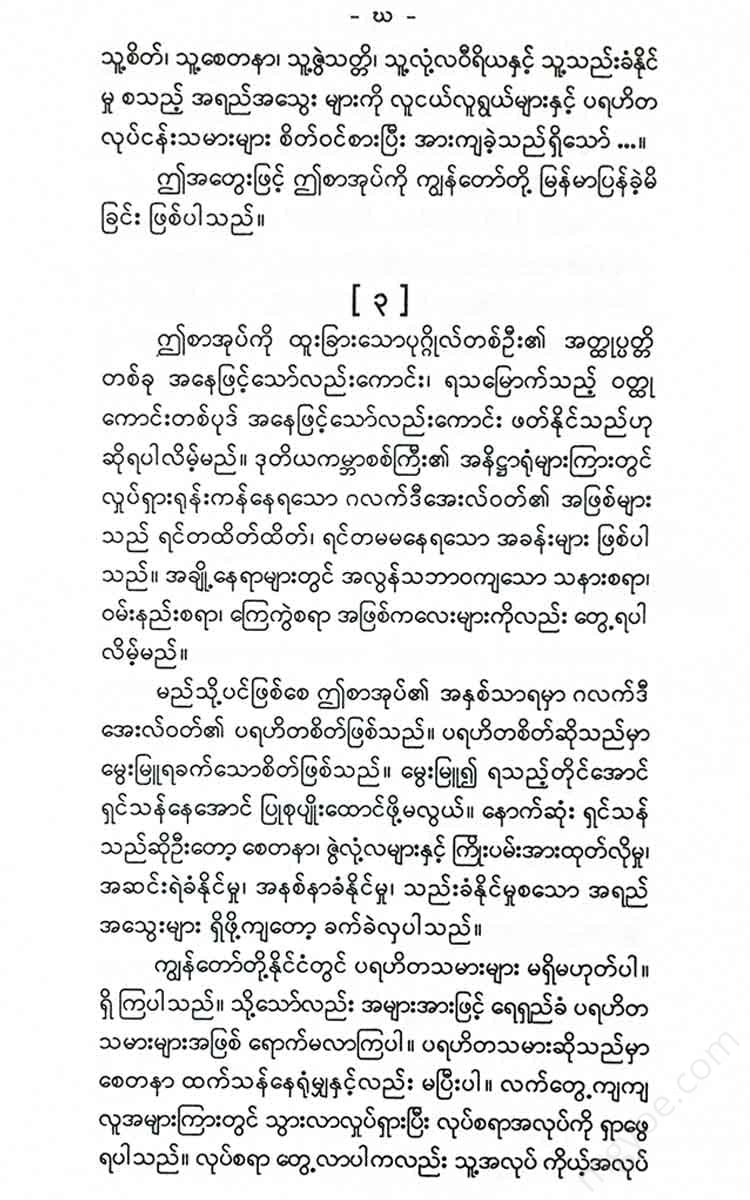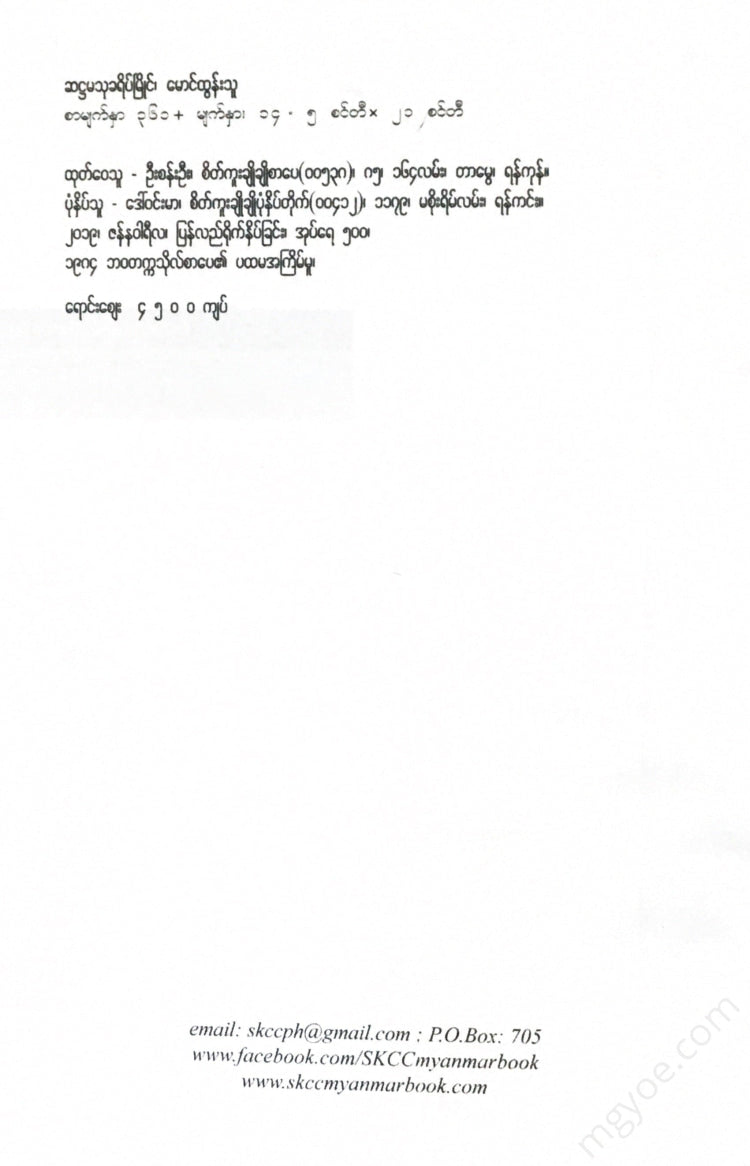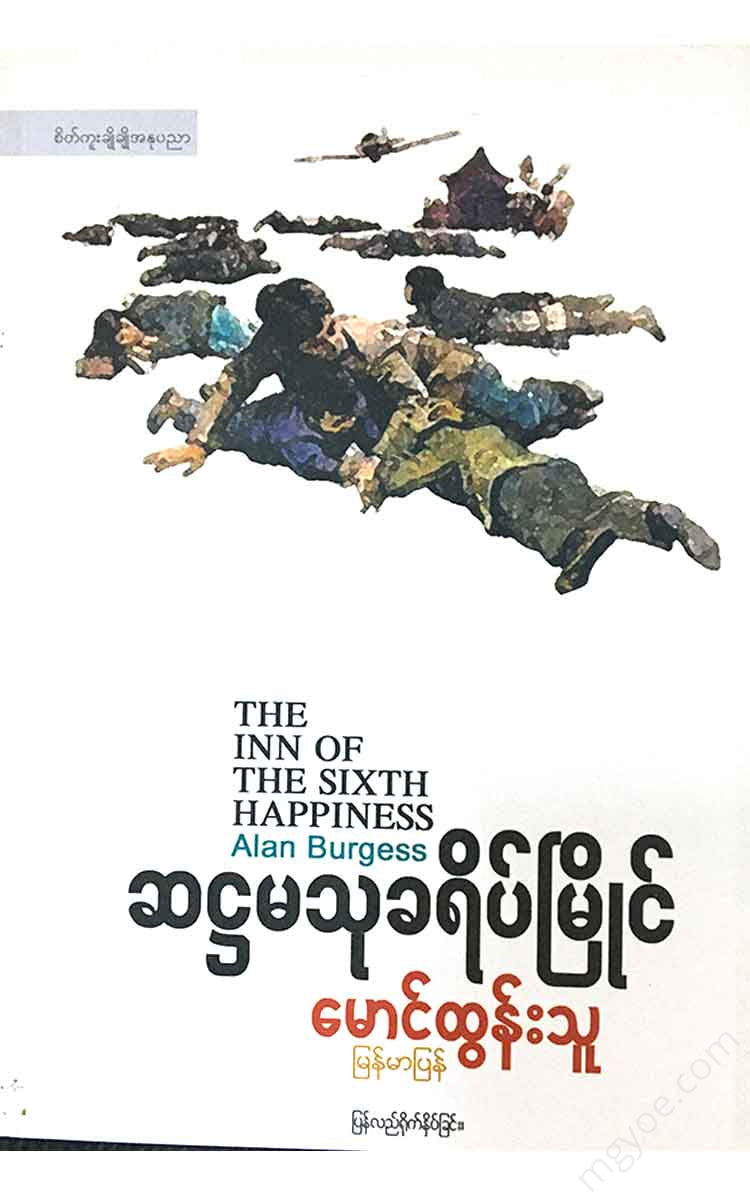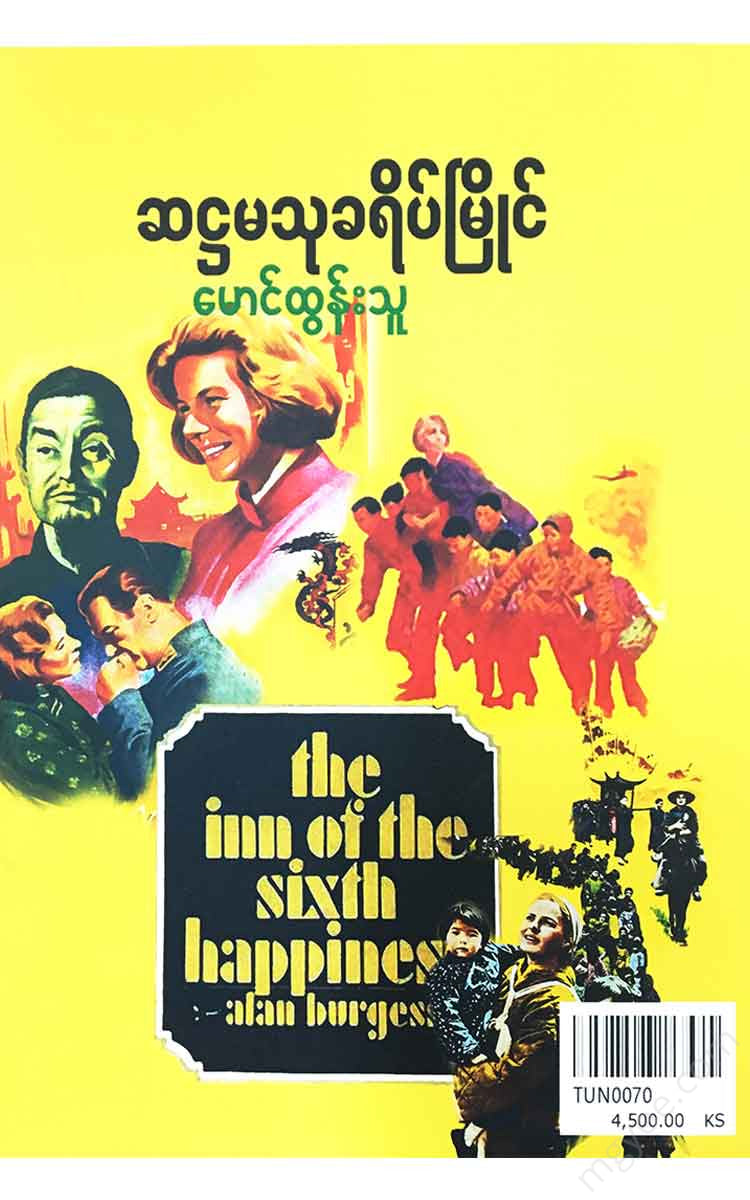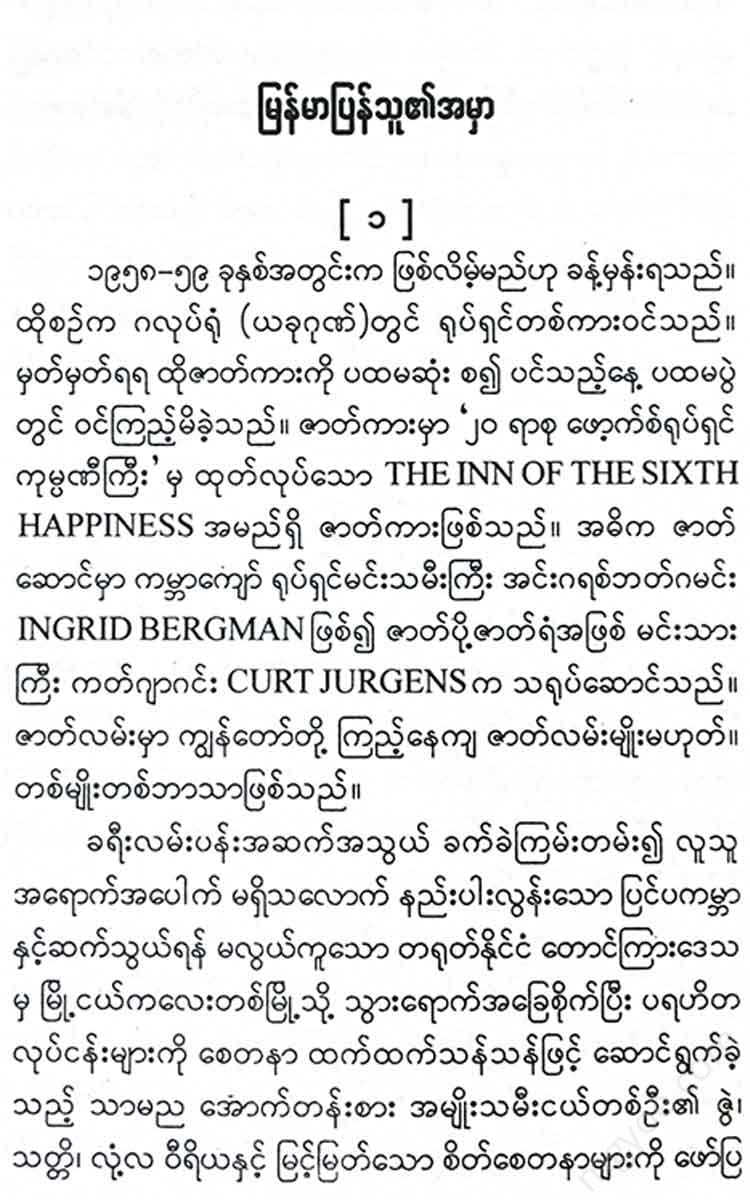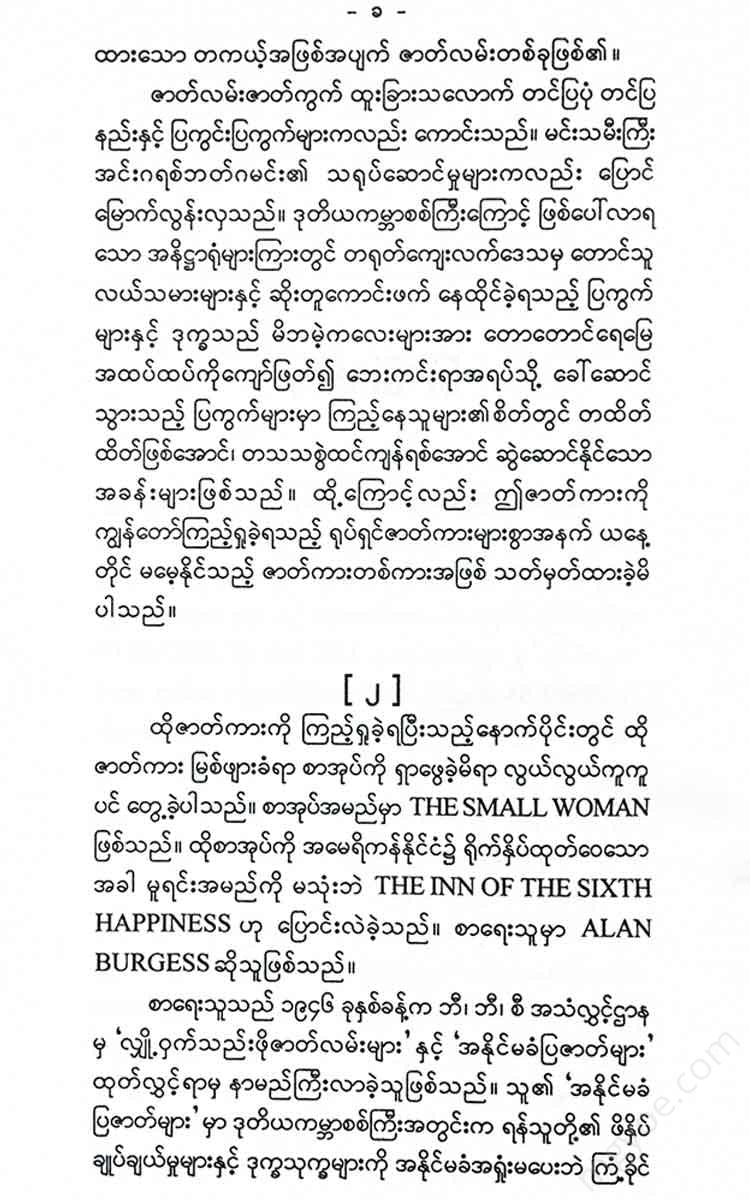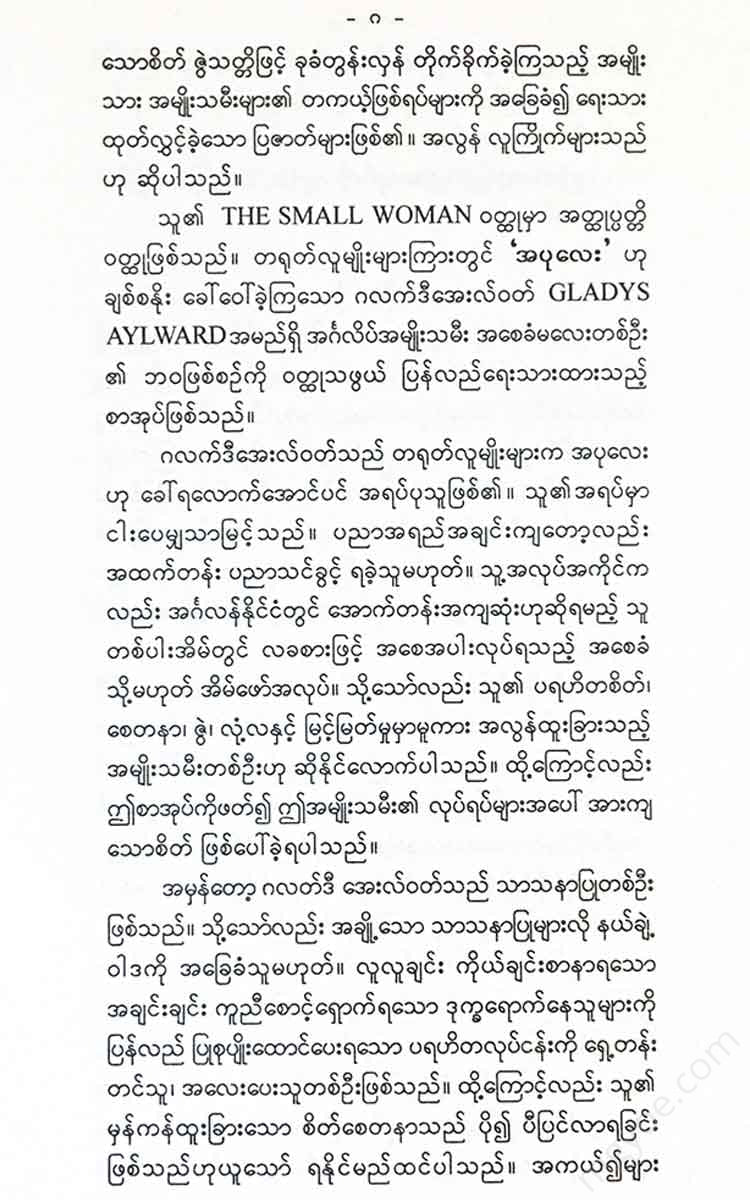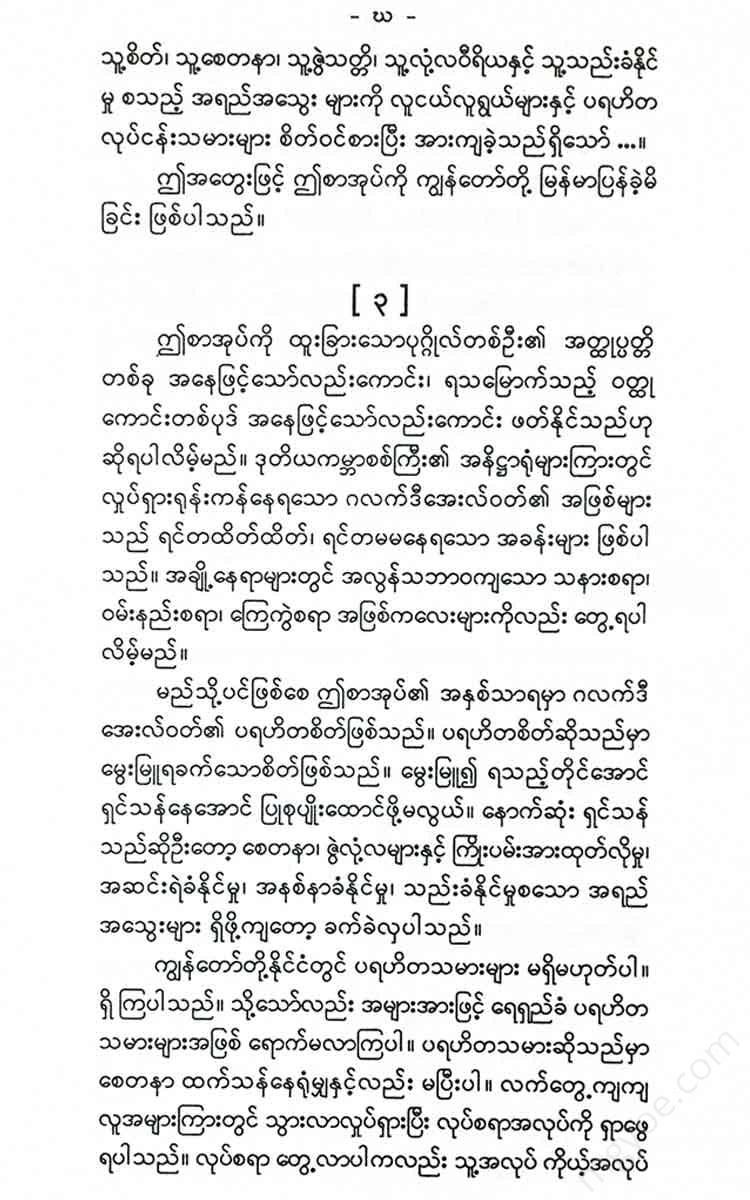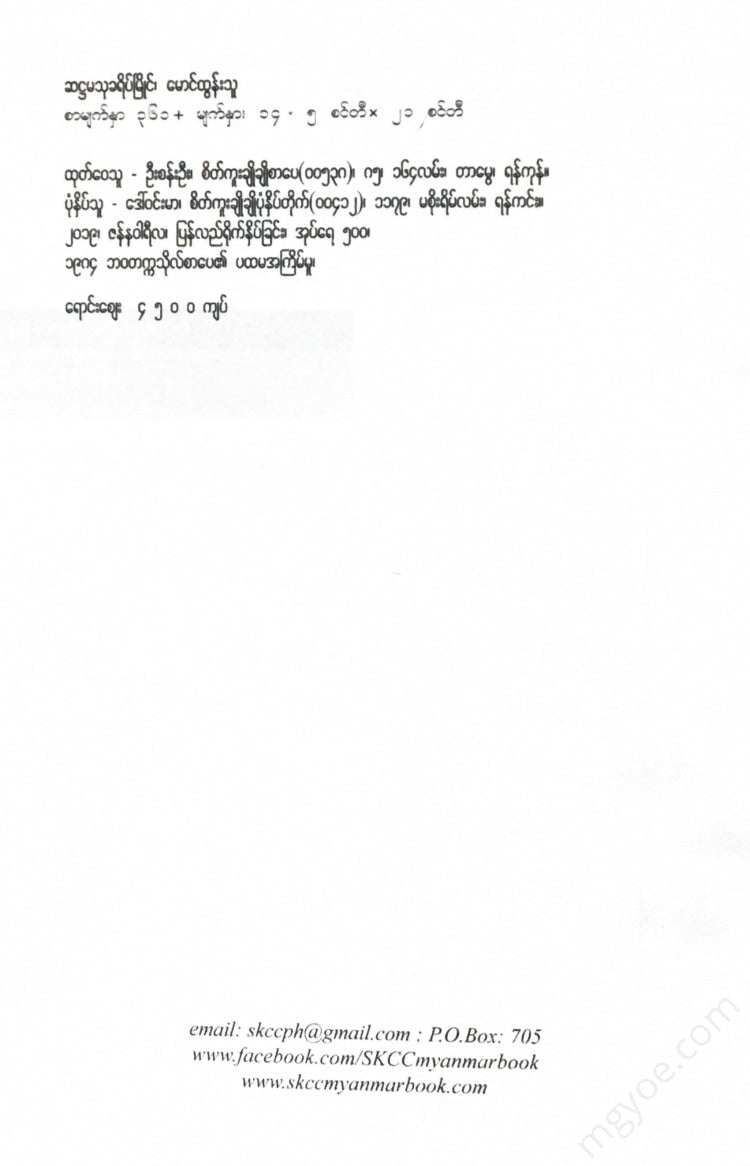စိတ်ကူးချိုချိုစာပေ
Maung Tun Thu - Sixth Temple of the Sun
Maung Tun Thu - Sixth Temple of the Sun
Couldn't load pickup availability
[ 1 ]
As soon as he studied the woman's condition, the doctor was very worried. As much as he was worried about the woman's health, he also thought about this strange woman and became interested in her. This woman was indeed dying... There was no reason to doubt this. The woman's current condition was hopeless. So... who was this woman?... No one knew this woman.
In the summer and winter of 1941, China was facing a terrible war. The Japanese fascists, armed with tanks, airplanes, artillery, and warships, were advancing in large numbers across China, wreaking havoc, killing, and destroying. The Chinese people were fiercely resisting the invasion with all their might and with all the weapons they could get their hands on. At this time, death was just a stone's throw away from everyone. It was a time when death could strike at any moment. At this time, if this woman died, no one would care.
At that time, the Scandinavian American Missionary Society in the war-torn city of Xinping, in northwest China, had only a few staff members who spoke English well. They didn't know the woman's name. Let alone her full name. They didn't even know where she came from.
In fact, this woman was carried by two Chinese peasants and left at the city gate. If this woman were a Chinese woman, they would not have carried her with such care. They would have left her to die on her own, the Chinese peasants told the gatekeeper frankly. Although she was dressed like a Chinese woman and was holding a Christian Bible written in Chinese, the Chinese peasants knew that she was a foreigner. They believed that it would be best for a woman to be among her own people and that by dying in this way her soul would be able to reach the God she trusted in, so they carried her to such lengths. Then the Chinese peasants disappeared as if by a landslide. Here the gatekeeper and his party reported to their masters that they had an unconscious woman in their arms.
Finally, the woman was delivered to the care of the Scandinavian American Missionary Society. The Missionary Society immediately telegraphed to the Baptist Missionary Hospital in Xi'an to send a doctor as soon as possible. The hospital, which was doing its best to provide whatever assistance was requested, according to the time and circumstances, sent a senior physician by train that same day. The physician arrived in the afternoon. He immediately examined the patient.
The doctor estimated that the woman was about thirty-five years old. Her body was thin and slender. She was just skin on her bones. She had not eaten or drunk properly for many days. Signs of malnutrition were evident all over her body. She had also been working for many months without any rest. Her whole body was tired and weak, and her muscles were weak. There was a wound on her back that was believed to have been caused by a gunshot wound that was believed to have been inflicted recently. Although it was not visible on the surface, it was believed that there were many internal injuries all over her body. These injuries were likely caused by a brutal beating with some kind of weapon within the past few months.
When the woman's temperature was taken, it was 105 degrees. She was in such a high fever that she could not sit still. She was shaking violently and was talking incoherently. She was shouting and screaming... She looked at the doctor examining her and thought he was a Japanese officer.
The doctor, who had lived in the northwest for many years, was well-versed in the diseases that were most common in the region. He therefore suspected that the woman was suffering from a type of typhus fever that was common in these regions. He immediately took a blood sample from the woman and sent a blood sample to Xi’an Hospital for analysis. The next day, the results came back from the hospital laboratory. The results were as he had predicted.
He immediately gave her an intravenous injection to relieve the fever. At that moment, a Swedish-American nurse named Mrs. Nelson arrived. The doctor thought that if the patient were left in Mrs. Nelson’s care, she would be able to recover. The medicine she had given her would help her to recover within forty-eight hours. Once the fever had subsided, she would only need to continue to receive proper and proper care. If she continued to receive proper care for a long time, the patient’s condition would improve. There was no need for a doctor to sit and watch over her. In this way, the doctor did all he could for the patient and then returned to Xi’an.
Five days later, a telegram arrived at the head physician at the Si-An Baptist Missionary Hospital. The unidentified female patient's condition was deteriorating again. Her fever had returned to normal, but the telegram said that it had suddenly risen to 105 degrees and that she was now in a severe state of fever.
He had to take the Mira train to Sinpain again. This time, the patient was suffering from typhoid fever. Three doctors at the Baptist Hospital had died of typhoid in the past few years, so the doctor thought that for a patient like this, who was completely weakened by malnutrition, fatigue, and shock, there was no other way but death. When he examined the patient again, he found that one of her lungs was cold and had developed pneumonia. At this point, the doctor gave up hope that the patient would recover.
Perhaps it was a coincidence from God. During such a difficult time, one of the missionary staff in Sinpain, who had returned from the United States on leave, came back. He brought with him about twenty sulfapyridine tablets in his personal medicine bag. The tablets were a new drug that had recently appeared and were known to be very effective in killing germs. The staff member was very kind to the female patient and gave all twenty tablets to the doctor. By administering these tablets, the doctor was able to completely cure the woman’s pneumonia. However, the patient’s condition was not very promising. The patient could only survive if she was immediately admitted to Xi’an Hospital. In fact, it was said that she could survive. This woman would have to continue to fight against death for her life.
The important thing now was to get the woman to the hospital. The great doctor had been living in China for about twenty years. Once upon a time, there was a great struggle for power between two warlords in this region, and at that time... he was present at the Battle of Xi'an. In that battle, about twenty thousand people died of starvation. He was the only one who was lucky enough to survive. Since then, he had not only become influential in the region, but also had become friends with the influential people in the region. He did not hesitate to use his influence and friendship to get this sick woman to the hospital in time, who had come into his care.
Fortunately, he got in touch by telephone with a friend of his who was in charge of the railway communications in the area. He explained the situation and pleaded for help.
“Master, I would like a private carriage on the first train leaving tomorrow morning. I have an important patient. He needs to be taken to the hospital as soon as possible. I have arranged for him to be carried on a stretcher. There will be four attendants to look after him on the way. He needs my help as it is very important.”
The train conductor promised to help the doctor as he requested. It would be funny if he knew that the woman, whose illness was rapidly progressing and who was delirious, had arranged a private carriage for her.
The people who were going to pick up the patient were waiting from Xi'an. The unconscious woman was immediately taken to the hospital. One of the female doctors offered her room to the patient. In this way, the patient had a spacious and well-ventilated room. The nurse, Ms. Nell, and the head nurse of the hospital, Ms. Major, took care of the patient with great care.
Fifteen days after arriving at the hospital, the woman's typhoid fever began to subside. By then, the Japanese, who had been idle earlier, had decided to launch an air attack on Xi'an.
Listening to the sounds of bombs falling on Xi'an, the doctor sat by the patient's bed. He still didn't know the patient's history. This woman had only been in Xi'an for two weeks. However, due to her extremely high fever, he had no time to clear his mind. Every time he heard the sound of bombs falling from the sky, the whole room shook with the force of the bomb hitting the ground, and the woman's thin, small body trembled. The pain she was feeling was so intense. Her whole body was sweating profusely. She often tried to sit up from her unconscious state. The doctor, who had seen so many patients and was very experienced, had never seen a patient in such severe pain as this woman. He held the woman's wrist and tried to comfort her. "My children..." Her voice was trembling and breathless. "Where are my children? The Japanese are after us and bombing us."
The doctor tried to comfort her. Finally, the sound of the bombers disappeared. A moment later, the sirens sounded, indicating that the airspace was clear. Only then did the woman calm down again. Her fever dropped significantly. The doctor thought it was strange that the sounds of the planes and the bombs had affected her so much. Why was this happening? He wondered. He could not have known about this woman, only knew.
But this woman was a mystery. The next morning, Mrs. Nelson was sitting by the patient's bedside. Suddenly, she felt a sharp pain... The patient's face contorted and she whispered. "It's not far now... children."
Then, at the same time, a muffled Chinese voice came out again. At first, no one understood the meaning of the Chinese words that came out of her mouth. Later, one of them realized that the Chinese that came out of the woman's mouth was... a Chinese language spoken by Chinese people in the northern mountainous regions. That morning, a smile appeared on the woman's face.
Then, as he forced his breath out of his tight throat, a whistling sound spread throughout the warm hospital room. The whistling was intermittent and indistinct. It was a whistling sound that used to be sung by Chinese postmen in ancient times. Gradually, the whistling got louder... louder, and finally stopped altogether.
The gibberish had completely disappeared. The patient was lying quietly. His eyes were gently closed.
There is.
Mrs. Nelson got up from her seat quietly and went outside. She met a young Chinese nurse in the corridor outside. "Now, go to sleep peacefully. That's good."
